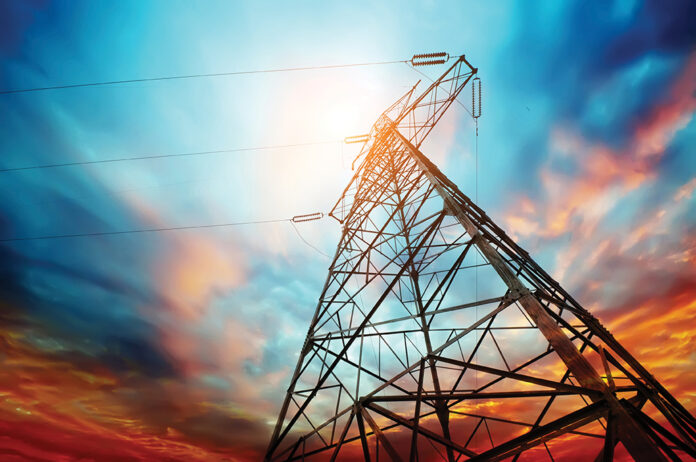
The Texas electricity grid is not stable. Everyone living in the state found that out the hard way in February. Many no doubt realized it again when the grid managers at ERCOT had to send out insufficient capacity warnings in April and June, asking customers to turn up their thermostats to absurd temperatures in an effort to place it on us to conserve power for them. This is, of course, exactly what the Democrats in California systematically do to their electric users.
So, everyone knows the grid is neither stable nor reliable, yet Governor Greg Abbott spent most of the month of June uttering ridiculous talking points designed to convince Texans that all is well on the grid. It was like listening to Baghdad Bob, only with a Texas accent.
In early June, he told the press that the Texas legislature, in its regular session, did everything that needed to be done to fix the grid. Barely a week later, the Governor topped that laughable bit of nonsense by stating during a press conference that the grid was now somehow “better than it has ever been.”
Mind you, this would be the very same Texas power grid, managed by the beleaguered Electric Reliability Council of Texas (ERCOT), that was at that very moment in time in the midst of a week-long warning regarding a potential shortage of available generating capacity. It is the same grid about which ERCOT had to issue that similar warning on April 13-14, two of the mildest weather days of the year thus far. It is the very same grid that failed so miserably during a winter storm in February that 10 million Texans were left without power as the state froze for days on end, causing 200 to lose their lives.
Since that February Big Freeze, the Texas grid that was demonstrably and unarguably the worst it has ever been has not undergone any significant physical change or upgrade. No weatherization of big power plants or wind turbines or gas pipelines has taken place. No new dispatchable thermal generating capacity powered by natural gas has been opened, had a groundbreaking ceremony or even been the subject of a final investment decision. No new transmission lines have magically appeared anywhere on the Texas landscape.
Yet, the Governor of Texas expects his constituents to just suspend all disbelief, ignore their lyin’ eyes and take his word that everything with the grid has suddenly become just peachy. The Governor’s rosy rhetoric is obviously a part of a strategy that he and other GOP leaders decided to adopt in the wake of the regular legislative session in order to avoid holding a special session to force legislators to really deal with the real issues remaining on the grid. The other piece of this “strategy” appears to be hoping to get lucky where the entirely unpredictable Texas weather is concerned.
With all statewide elected offices and most legislative seats being up for re-election in November 2022, the Governor and his fellow Republicans are hoping against hope that ERCOT will somehow be able to manage to avoid another series of blackouts when the weather gets really hot during August and September this year and next, and praying that the state does not experience another severe winter storm as it did in February. If they do get lucky – which admittedly is entirely possible – then this strategy of avoidance and false narratives will result in no great political harm.
But if they don’t get lucky where the weather and ERCOT’s questionable ability to effectively manage the grid are concerned, then these Republicans will have to shoulder the blame and explain to their constituents why they did not act to fix the grid when they had the chance to do so this year.
Because here’s the deal where the grid is concerned: It is entirely a product of the Texas Republican Party. See, Texas never had major power supply issues prior to the de-regulation of its grid and mass incentivization of unreliable, unpredictable wind power. Those two policy decisions were taken during the 1999 and 2001 sessions of the Texas legislature, and Republicans were in charge of every statewide office and most seats in the House and Senate during those two fateful sessions. Democrats held zero levers of power, which has been the case in Texas since 1996.
The plain and simple fact of the matter is that, just as there are no Republican fingerprints on Obamacare, there is not a single Democrat fingerprint on today’s Texas power grid. Not one. Thus, whenever that grid fails, the finger of political blame will correctly be pointed at the Texas GOP.
There are two major problems remaining related to the grid that the legislature failed to address during its regular session. The first is an obvious lack of adequate backup, dispatchable capacity on the grid, a malady that Gov. Abbott himself admitted during a speech on February 24, and which Lt. Gov. Dan Patrick pointed to in an op/ed in the Dallas Morning News on June 29. It is a problem, it’s a big problem, and the legislature failed to address it. Period.
This lack of dispatchable capacity (“dispatchable” meaning it is not renewable, its generating capacity can be reliably estimated, and it can be turned on and off in short order, i.e., it must be powered by natural gas) has led directly to the second big remaining problem: ERCOT has become overly reliant on wind capacity. The grid managers know they don’t have enough reliable baseload capacity on many days of the year, so they often resort to treating wind power as if it were itself dispatchable, assuming it will generate far more power than it ultimately ends up being capable of providing. This is exactly what took place in the April and June warnings by ERCOT when their computer models pretended they could count on getting 10-12 Megawatts (MW) of power from wind, and they only ended up getting 3 MW or so during the peak periods of the day.
This systemic over-reliance and over-estimation of wind is madness, and it has to stop happening. The best way to do that would be to force wind generators to bid specific loads into the system on a daily basis and force them to purchase energy to fill the gap when they fail to meet their bids. This is what every other power generating source on the grid must do, after all. But when proposals to force wind to play on a level playing field came to the floor for consideration and the wind groupies in the Texas news media (I’m talking about you, Texas Tribune and Houston Chronicle) started pounding anyone in support of those proposals, many cowardly Republicans ran for the hills hoping to avoid a bad day in the press.
This also is madness, and it must stop if the state’s grid is ever going to be stabilized. Lt. Gov. Patrick, to his great credit, understands all of this and urged Gov. Abbott to call a special session to deal with these glaring, unfilled holes in the system in his June 29 op/ed.
As a lifelong Republican myself, this all concerns me greatly. Because unless these issues are addressed, then the Texas GOP is in great political peril if any major hiccups on the grid happen between now and next November. Democrats have been trying to turn Texas blue again for the last 25 years and have always failed in laughable and embarrassing ways. But this situation with the grid, and the GOP’s 100% responsibility for it, has the potential to change all of that. All it will take is a nasty high-pressure system sitting over North Central Texas for a couple of weeks in August this year or next, or another major winter storm freezing the grid into submission next February.
Bottom line: Governor Abbott’s strategy of avoidance and hope is a very dangerous game. It also is madness, and it needs to stop. Because as bad as this GOP-run grid has become, all we have to do is look to California to see how it all would quickly become immeasurably worse with a bunch of Democrats in charge.
About the author: David Blackmon is the Editor of SHALE Oil & Gas Business Magazine. He previously spent 37 years in the oil and natural gas industry in a variety of roles — the last 22 years engaging in public policy issues at the state and national levels. Contact David Blackmon at [email protected].














